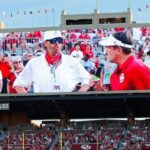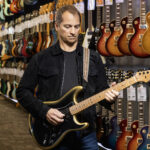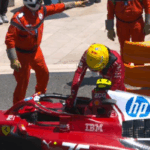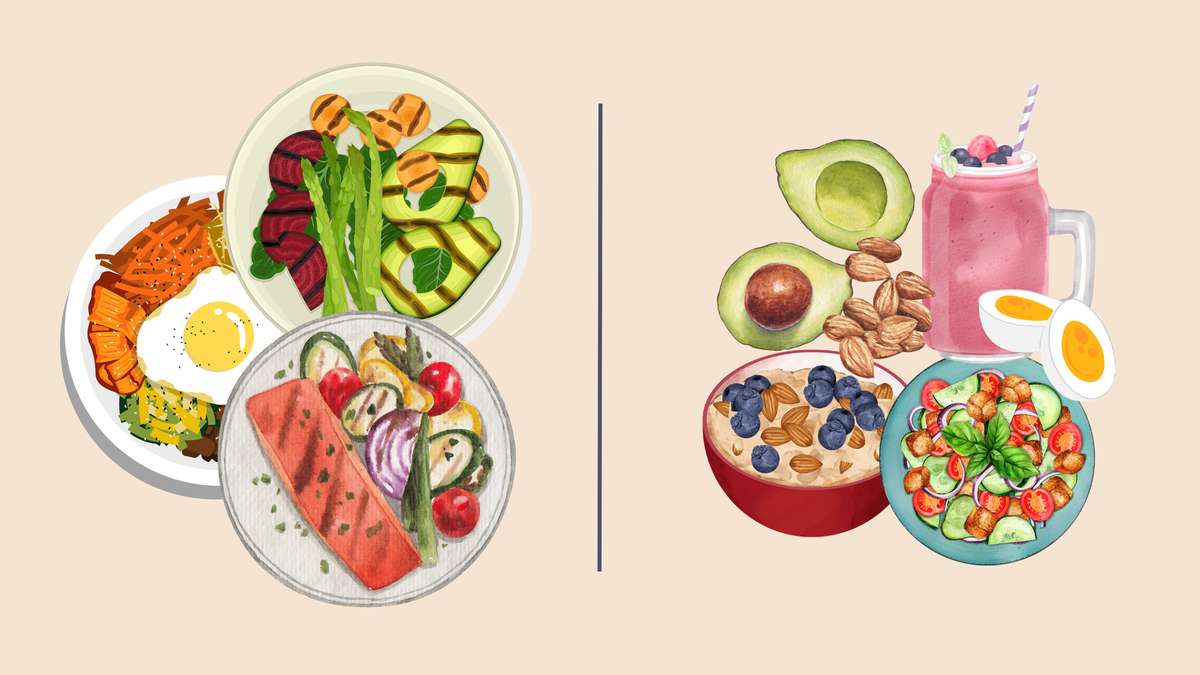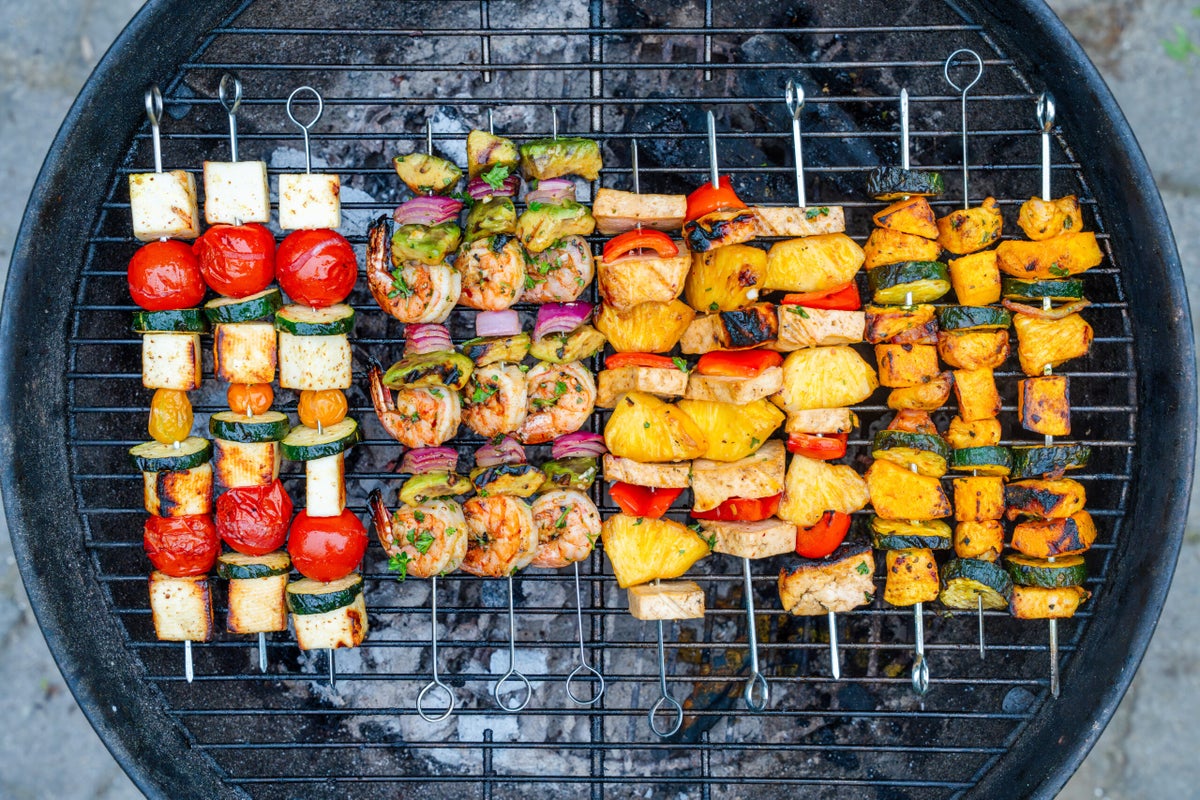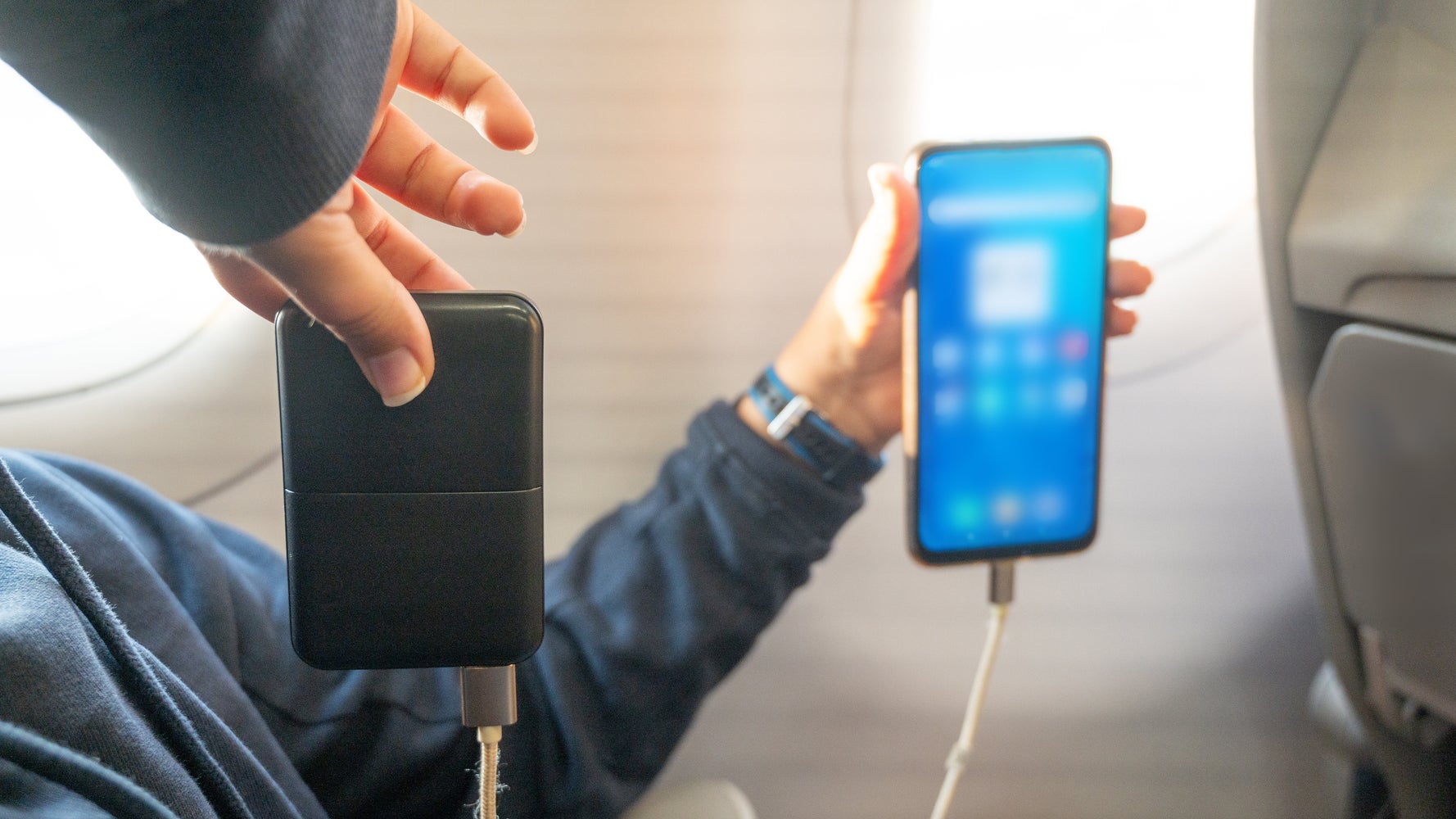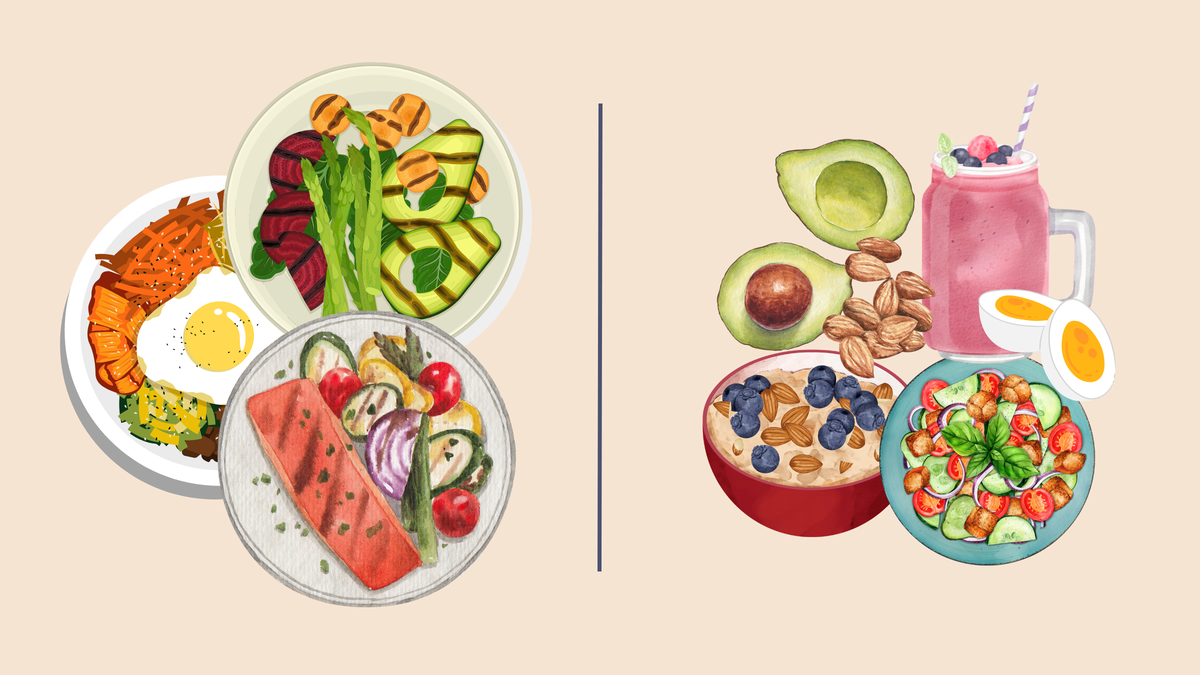
Getting through a full workout is tough when you haven’t properly fueled up. If you find that you’re regularly struggling with energy levels, it’s fair to wonder if you’re eating at the right frequency for your needs.
Some swear by eating small, frequent meals throughout the day, while others say it’s better to stick with three meals that are more substantial. Dietitians say there isn’t one hard and fast strategy that applies to everyone, but there are several factors to consider when choosing an eating plan for yourself. Here’s what nutrition experts have to say.
How, Exactly, Does Food Help Athletic Performance?
“Food plays a crucial role in athletic performance by providing the necessary energy, nutrients, and support for optimal bodily functions during training, competition, and recovery,” says Kacie Vavrek, a registered dietitian and certified sports specialist in dietetics at The Ohio State University Wexner Medical Center.
But specific elements in foods make a difference, Vavrek says. They’re called macronutrients, and they’re the nutrients your body needs in larger amounts to function properly.
For optimal performance, Stephani Johnson, nutrition researcher and adjunct professor in the Department of Clinical and Preventive Nutrition Sciences at Rutgers University, says your body relies on three major macronutrients: carbs, fats, and proteins.
Is It Better to Eat Throughout the Day or to Have a Few Big Meals?
The resounding answer from dietitians? “It depends.” Still, many are partial to a particular eating strategy. “From an athletic standpoint, eating smaller, more frequent meals throughout the day is generally better than consuming fewer large meals,” Johnson says.
Vavrek agrees. “Eating throughout the day helps maintain energy levels, optimize muscle recovery, improve performance, prevent muscle breakdown, and support overall health,” she says. The International Society of Sports Nutrition (ISSN) also supports the practice of “nutrient timing,” which involves eating certain nutrients throughout the day to support exercise needs.
But Dana Ellis Hunnes, senior dietitian at UCLA Medical Center, argues that your diet depends on what you’re training for. If you favor workouts that require short bursts of energy, like sprinting, Hunnes considers fueling throughout the day to be “completely unnecessary.” But she concedes that people who focus on endurance sports may do better with eating throughout the day to keep energy levels up and replenish glycogen stores.
Some may even benefit from a mix of both strategies. “I prefer a little bit of each: a few bigger meals, but having some snacks in between,” says Olivia Morgan, a Mass General Brigham registered dietitian and sports nutritionist, adding that athletes shouldn’t have gaps of more than four to five hours between eating times. Longer than that, and you run the risk of the body breaking down muscle, which will work against your athletic goals.
How to Eat Throughout the Day for Improved Athletic Performance
Eating throughout the day doesn’t necessarily mean constantly snacking—there is strategy involved. “It’s important to focus on nutrient timing and a balanced intake of macronutrients,” Vavrek says. She recommends aiming to eat every three to four hours to maintain energy levels, support muscle repair, and prevent long periods without nutrients.
Tailoring Your Daily Meals to Your Exercise Plans
Whether you’re eating smaller or larger meals, what you’re eating matters. “For athletes, meals should have a balance of all macronutrients,” says Vavrek. She recommends that the macronutrient breakdown of each meal should look as follows: 45 to 65 percent carbs, 15 to 35 percent protein, and 20 to 35 percent fats.
For Aerobic Exercise
The type of exercise you do is relevant, too. For intense aerobic exercise, Johnson suggests having a small, easily digestible snack with carbs to fuel your body during exercise, like a banana, dried fruit, or yogurt (if you can tolerate dairy close to a workout).
For Workouts Less Than 60 Minutes
If you’re exercising for under an hour, you should be fine just drinking water during your workout, says Johnson.
For Workouts That Exceed One Hour
If you’re doing higher-intensity workouts over 60 minutes, eating between 30 and 60 grams of carbohydrates an hour can help to keep your energy levels up. And for exercise longer than 90 minutes? Johnson recommends supplementing those carbs with electrolytes.
For After Your Workout
Post-workout, Johnson suggests a snack or meal that includes complex carbohydrates—longer chains of sugar molecules that digest slowly to give drawn-out energy and prevent blood sugar spikes—to help replenish glycogen stores and protein to promote muscle recovery. An apple with nut butter or a slice of turkey on a whole wheat tortilla are ideal menu items.
For Strength Training Days
For strength training sessions, Johnson suggests having 15 to 25 grams of protein one to three hours before your workout to help prevent muscle breakdown and support recovery. After you’ve completed your workout, consume 20 to 40 grams of protein within half an hour to two hours to boost muscle building, improve recovery, and reduce soreness.
For Easy Workout and Active Recovery Days
But if your workouts are more laid-back, you don’t necessarily need to be all that strategic about your eating. “Someone who is working out leisurely would not need to fuel throughout the day or necessarily change much about what they’re doing,” says Hunnes.
If You Prefer Eating Big Meals During the Day, Do This
If you prefer to have larger meals or it’s all that your schedule allows for, Vavrek says there is still strategy involved. “The goal is to consume the necessary macronutrients to fuel the body for training, support recovery, and optimize overall performance,” she says. “Try to avoid skipping meals and consume at least three meals a day to prevent going too long without eating.” Vavrek adds that all meals should still be balanced and include all macronutrients and food groups.
Timing is also essential. “Pre-workout meals should be consumed one to three hours before exercise,” Vavrek says, noting that pre-exercise meals should lean heavily into carbohydrates. “After a workout, aim for a balanced meal within one to two hours.”
Pro tip: You can also pre-load your meals if you have a race or event coming up. “Eating a lot of carbs the night before—healthy carbs such as whole grains, fruits, and vegetables—and then perhaps a smaller pre-race meal of faster-digesting carbs, a banana, and a small amount of peanut butter,” can be helpful,” Hunnes says.
Signs You’re Not Fueling Yourself Correctly
You can feel wiped out fast when you’re not fueling the right way. “We call it ‘the bonk,’” Morgan says. “Your body kind of runs out of that fuel, and you get feelings of weakness, like you can’t go on any further.”
Hunnes says that soreness that lasts longer than normal and feeling unable to keep up your normal activity levels for days in a row are also signs you’re not getting the proper nutrition.
Experiencing mental and physical fatigue here and there can be a challenging annoyance, but attempting to muscle through energy depletion can take a toll on your body. “Chronic energy deficiency in athletes can lead to long-term health consequences such as low bone mineral density, nutrient deficiencies, and hormone dysfunction,” Vavrek says.
The International Olympic Committee has several printable fact sheets on proper fueling for athletes, each broken down by easy, moderate, and hard workout days to make the guidance even easier to follow. Morgan also suggests meeting with a sports dietitian if your budget and/or health insurance allow for it.
If the dietitian route isn’t an option, Morgan suggests taking a moment to think about when you’re hungry during the day and when you typically exercise. “Are you prioritizing fueling before your workouts?” she asks. “And how frequently are you eating throughout the day?”
While it’s generally recommended that you eat smaller meals throughout the day for athletic performance, dietitians acknowledge that this approach isn’t for everyone.
As Morgan succinctly puts it: “Everybody is different.”
Want more of Outside’s Health stories? Sign up for the Bodywork newsletter.
The post Is It Better to Eat Throughout the Day or Have a Few Big Meals? appeared first on Outside Online.





